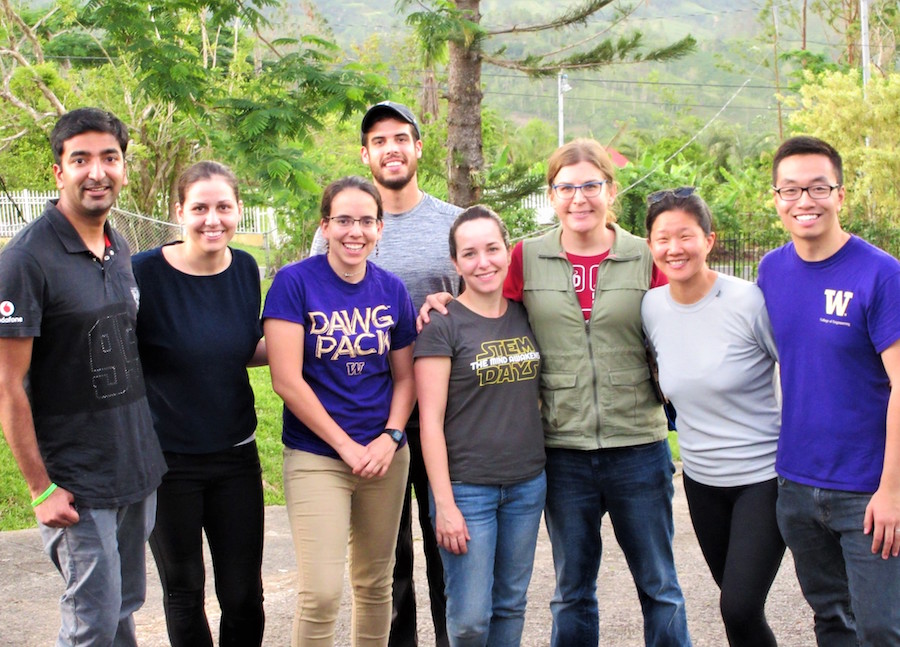
Background
Just days after Hurricane Maria’s landfall in September 2017, Puerto Rico native and UW professor of chemical engineering Lilo Pozzo initiated an effort to help the island’s most vulnerable citizens recover. The rural mountain municipality of Jayuya — the hometown of her wife, Marvi Matos — was without grid-based power for months, a potentially life-threatening scenario for members of the community with medical needs that require access to electricity.
Pozzo built a coalition of faculty experts including Dan Schwartz, director of the Clean Energy Institute (CEI) and professor of chemical engineering, Charbel El Bcheraoui, assistant professor of global health at the Institute for Health Metrics and Evaluation (IHME), Youngjun Choe, assistant professor of industrial and systems engineering, Daniel Kirschen, professor of electrical engineering, and Jessica Kaminsky, assistant professor of civil and environmental engineering, with the goal of preparing student groups for a series of trips to Jayuya. The UW groups will help Jayuya meet immediate energy supply needs and will eventually propose engineering solutions to minimize detrimental health impacts from future power outages. The ultimate goal is to create a scalable model for increasing energy resiliency across rural Puerto Rico.
In November 2017, Pozzo and the first group of students made their way to Jayuya, where they conducted qualitative interviews of 28 patients and logged each of their electrically-powered medical devices. The group also installed solar-powered battery systems to power fridges for insulin storage and an orthopedic bed for a bedridden patient. These single-building, single-source systems are also known as “nanogrids”, a term which is best understood in comparison to larger-scale “microgrids” that use multiple energy sources to power a military base, a college campus, or a small town. Read more about the November trip
In winter 2018, the team was hard at work transcribing and translating interviews and compiling quantitative data for a report detailing best practices and possible solutions. The UW initiative also established a partnership with Professor George Roe and Seattle Pacific University. Upper-level undergraduates in Roe’s “Appropriate and Sustainable Engineering” course used data and qualitative information from the November trip to design modular, transportable, and self-contained generator-battery systems.
A second group returned to Jayuya in March 2018 to follow up on their research efforts and install 17 more solar-battery nanogrids. Read more about the March trip
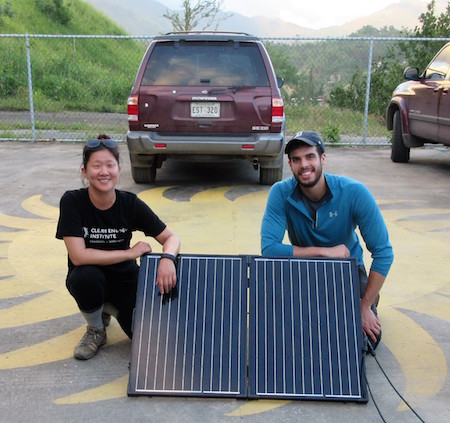
The team returned to Jayuya once more in the summer of 2018 to obtain the data collected by the data loggers in the installed PV-battery systems. They also administered satisfactions surveys to gauge user experience and perceptions of solar energy as a form of emergency energy supply, and analyzed both of these data sets for an article in IEEE Power and Energy Magazine.
Mission Statement
This initiative was formulated as a timely response to studying adverse health effects of Hurricane Maria and to propose clean-energy solutions aiming to minimize detrimental patient outcomes in future emergency events. In addition to producing outcomes that bring concrete value and support to a community in need, this initiative will provide meaningful scholarly and globally-conscious experience to University of Washington students, and create critical linkages between the clean energy and population health initiatives on campus.
People
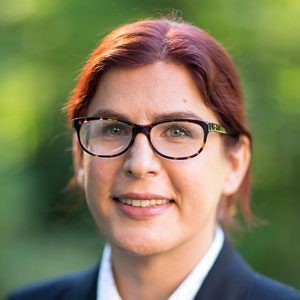
Professor Lilo Pozzo
Lilo is the Weyerhaeuser Associate Professor of Chemical Engineering and a faculty member of the Clean Energy Institute at UW. She is a native of Puerto Rico, and is the faculty leader of this initiative.
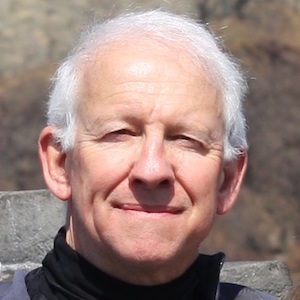
Dr. Michael Chapko
Michael is a Research Professor Emeritus in the Department of Health Services, UW School of Public Health, and was a member of the March 2018 trip.
“I was impressed by the families that were helped and the UW team that went to Puerto Rico. The families showed great resilience in coping with the aftermath of Maria and their willingness to support loved ones with medical needs. The UW Puerto Rico project demonstrates the feasibility of delivering — and families effectively using — solar-powered systems that can supply needed electricity for home-based medical devices, and it’s an honor to be affiliated with the multidisciplinary UW team of students and faculty.”
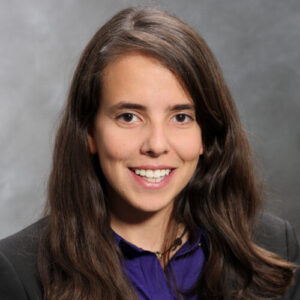
Mareldi Ahumada
Mareldi is a 1st-year electrical engineering Ph.D. student in Professor Daniel Kirschen’s lab, and was a participant in both the November 2017 and March 2018 trips to Jayuya.
“This is a very hands-on project with working opportunities across multiple disciplines. It is also a unique opportunity to bring a project from definition to delivering results in a short period of time, due to the urgency of the aftermath of Hurricane Maria. These types of projects are the reason I want to further my career in engineering and renewable energy.”
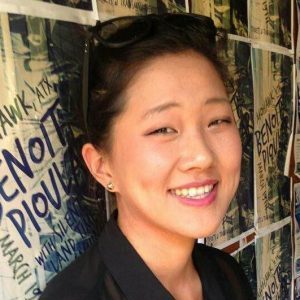
Lauren Kang
Lauren is a 5th-year chemistry Ph.D. student in Christine Luscombe’s research group, a CEI Graduate Fellow, and the Lead Officer of Diversity In Clean Energy (DICE). She was one of the participants in the November 2017 trip.
“My experience with DICE and my research on photovoltaics provided me with a strong background for leadership in logistics and outreach for this project. I see myself down the line doing educational program management, and this is a great opportunity to take something that I care about from a fledgling plan to real life.”
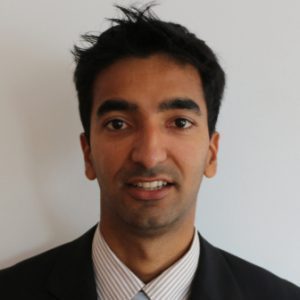
Dr. Chanaka Keerthisinghe
Chanaka is a postdoctoral research associate in Professor Daniel Kirschen’s Renewable Energy Analysis Lab, and was a participant on both the November 2017 and March 2018 trips to Jayuya. He is also working with Snohomish Public Utility District and Seattle City Light on microgrid initiatives.
“Since I am from an electrical engineering background, my favorite experience in Puerto Rico was the installation of solar-battery systems for people who use electrically-powered medical devices. I have always been interested in doing this kind of voluntary work.”
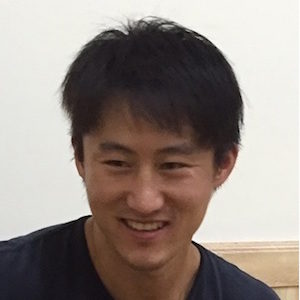
Yohan Min
Yohan is a construction management graduate student, focused on resilient and sustainable built infrastructure, and was a member of the March trip to Jayuya.
“While working for the International Renewable Energy Agency (IRENA), I became interested in renewable energy as a characteristic of decentralized energy supplies, which I believe are essential for community resilience in emergency situations. My experience in Puerto Rico – interacting with the vulnerable members of the community and installing solar PV devices – confirmed my belief in renewable energy, and especially solar PV, as a solution to this problem.”
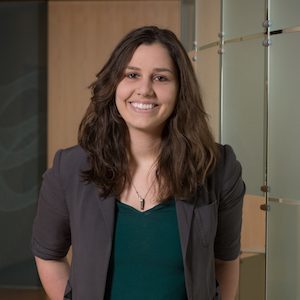
Erin Palmisano
Erin is a Research Manager at the Institute for Health Metrics and Evaluation (IHME) at UW, and works on projects that collect data and report on health indicators in low resource settings in Central America and Mexico. She was a member of the November 2017 trip to Jayuya.
“I joined Professor Pozzo and her team on the November trip to provide a more health-focused perspective. With help from Dr. Charbel El Bcheraoui, a qualitative expert at IHME, we developed an interview topic guide and defined a sample of individuals to interview about their preparations for and experience during and after the hurricane, and how the lack of power affected health in the community. In general, the trip was extremely informative and we were able to hear many first-hand experiences about how the lack of power has influenced health.”
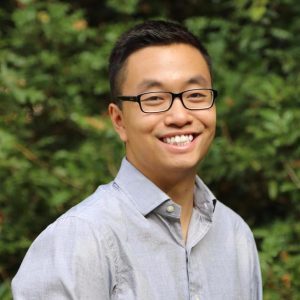
Chester Pham
Chester is a senior chemical engineering major, and currently serves as the president of UW’s Engineers Without Borders (EWB) chapter. Chester was also a participant in the November 2017 trip to Jayuya.
“I have a passion for developing innovative solutions to the health and environmental problems that we face, and have always had an interest in service. As President of EWB this year, and having been part of the organization since freshman year, I have really developed my passion for global development and health. In Puerto Rico, we interfaced with community members to understand how the hurricane impacted them and what their current needs and struggles were at the time we visited. This experience has allowed me to understand how our work can be directed to be impactful for those in need.”
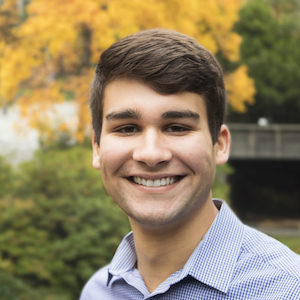
Hugo Pontes
Hugo is a sophomore chemical engineering major, and was a member of the March trip to Jayuya.
“As a fellow Latino person, this initiative has been a fantastic opportunity to give back to my community by finding engineering solutions to their energy problems and helping people with critical healthcare needs. My experience in Puerto Rico was quite amazing. I was able to conduct many interviews with patients that depended on power for their medical needs. That allowed me to gain a personal insight on what the people in Jayuya went through. Many of the interviews were very emotional and it was hard knowing that we could not help everyone, as many people continue without power. I had the amazing opportunity to work with very talented professionals in the team that had a lot of knowledge and care for the project that we are working on. It has truly been a pleasure to be able to contribute to a project that will hopefully help many people in the long run.”
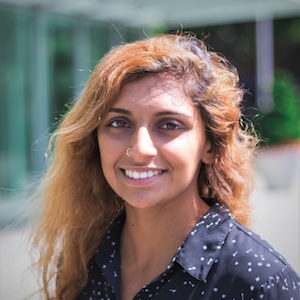
Anya Raj
Anya is currently a volunteer research assistant in Professor Pozzo’s lab, graduating from UW in 2017 with a major in aeronautical & astronautical engineering. She was a member of the March 2018 trip to Jayuya.
“I joined the initiative around the time I started working for Dr. Pozzo, after the group had returned from the first trip. It looked like a really interesting opportunity to use my engineering skills to make a positive impact on people’s lives. Helping to analyze the interviews from November gave me some insight into the complexity of the situation, but it wasn’t until going to Jayuya with the group in March that I really began to understand how much the hurricane continues to impact daily life. To me, what makes this project unique is that it balances research and service equally, impacting some of the people who need it most and providing useful data points for disaster mitigation in the future.”
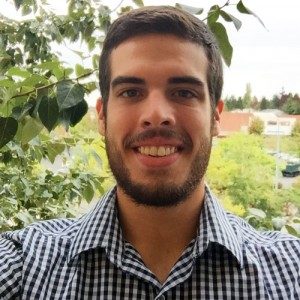
Wesley Tatum
Wes is a 3rd-year materials science & engineering Ph.D. student in Christine Luscombe’s group, a member of CEI’s Data Intensive Research Enabling Clean Technologies (DIRECT) training program, and is the CEI Liaison for DICE. Wes was a participant in both the November 2017 and March 2018 trips to Jayuya.
“The whole reason why I’m researching clean energy is because I want to help people. Before working in a nonprofit setting, I had thought in terms of business efficiency, but this gives you a different perspective. You still think about cost effectiveness, efficiencies, and material performance, but how can you impact the most people rather than just those who can afford it?”
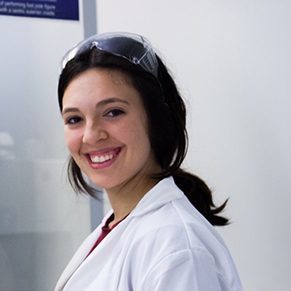
Gabriella Tosado
Gaby is a 2nd-year chemical engineering Ph.D. student in Professor Qiuming Yu’s group, CEI’s first Education and Training Fellow, and a founding member of UW Women in Chemical Engineering (WChE). She is leading fundraising efforts to supply more of Jayuya’s vulnerable citizens with decentralized solar-battery systems.
In the Media
The New York Times: Rethinking Electric Power, Prompted By Politics and Disaster (Dec. 11, 2017)
November 2017
The initiative’s first trip to Puerto Rico took place in November 2017. The UW contingent included chemical engineering professor Lilo Pozzo, electrical engineering Ph.D. student Mareldi Ahumada, electrical engineering postdoc Chanaka Keerthisinghe, chemistry Ph.D. student Lauren Kang, Institute for Health Metrics and Evaluation (IHME) researcher Erin Palmisano, chemical engineering major Chester Pham ’18, and materials science & engineering Ph.D. student Wesley Tatum. Read more about the participants
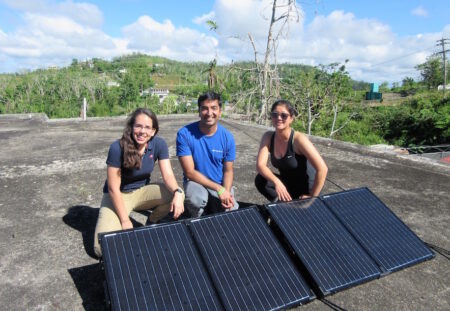
After a short stay in the capitol, San Juan, the group made their way to Jayuya. There, they met with Jayuya’s mayor, the director of water distribution, CDC doctors assigned to the central clinic, the directors of assisted and non-assisted living, and other community leaders in order to determine a list of people that were bedridden, their needs, and if they were reliant on power for their health.
Tatum described his initial reaction to the infrastructural damage: “The problem was much bigger than we thought. It’s really at a governmental scale, because the whole island runs on a centralized grid, and rebuilding efforts had largely been focused on population centers.”
The UW team conducted qualitative interviews of 28 patients and logged each of their electrically-powered medical devices, and also installed solar-powered battery systems to power fridges for insulin storage and an orthopedic bed for a bedridden patient. Their goal is to distill the data into a written report detailing possible solutions and best practices. They will return to Jayuya in March 2018.
March 2018
Over UW’s spring break, Pozzo, Matos, Ahumada, Keerthisinghe, and Tatum returned to Jayuya, accompanied by four new members: chemical engineering major Hugo Pontes ’20, construction management graduate student Yohan Min, aeronautical & astronautical engineering graduate Anya Raj ’17, and Health Services Research Professor Emeritus Michael Chapko. Read more about the participants
The team interviewed 25 families and installed 17 small-scale solar-battery systems. Five of the systems were commercially available, while the rest were designed and built by the team at UW from commercial components. Eleven of the systems have the capacity to track electrical loads (energy consumption), enabling the UW team to analyze how people use the systems during power outages.
The team also followed up on nanogrid installations from the November trip. Each recipient mentioned that the systems had been of great help during the emergency. Two of the systems, installed to power mini-fridges for insulin storage, worked for months until the families recovered grid power. The third system had been installed in a remote community center, to power a communal refrigerator for insulin storage. Tesla has since installed a solar-battery system that enables operation of the rest of the facility, while leaving the original system in place.
The last system was installed for a bedridden patient, to power an inflatable orthopedic mattress to prevent ulcers. The family had continued to use the system, in spite of the fact that they had recently recovered electricity. As the family explained to the UW team, running a traditional generator to power the mattress for the entire night is costly and leads to deterioration.
In April 2018, Puerto Rico’s central grid was damaged during recovery efforts, causing an island-wide power outage. Decentralized solutions, like the solar-battery systems installed by the UW team, are resistant to grid blackouts and can save lives in these situations.
Support
Travel funds were provided by CEI and the UW Office of Global Affairs’ Global Innovation Fund. The solar-powered battery devices installed in March 2018 were purchased thanks to generous support from the Clean Energy Group through its Resilient Power Project, as well as numerous individual donors.
If you would like to support these efforts, make a donation to the Puerto Rico Energy Recovery Fund.






